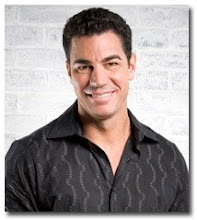Special Vitamin Needs for Seniors
Being older does not necessarily mean being wiser when it comes to making the right food choices and proper senior nutrition. You’d think that by the time people reach their 'golden years' they would not only understand the importance of eating nutritionally-balanced meals. They'd be well-practiced in doing so.
The reality is, however, that for a number of different reasons, seniors often do not get the vitamins and minerals their aging bodies need to fight the onset of debilitating conditions including the signs of aging.
As people age, their bodies naturally become less efficient at using nutrients. To compound the situation, seniors generally develop more illnesses and as a result, tend to take more medications than other age groups. Many of these medications adversely affect the way the body breaks down nutrients.
MyNutritionStore.com says plenty of seniors are living alone and don't feel the need or the desire to prepare nutritionally-balanced meals. Add in the fact that most seniors don't moderately exercise on a regular basis and it's no wonder seniors so frequently exhibit the symptoms of different vitamin deficiencies. As advanced as society is, a good percentage of seniors are considered 'undernourished'.
Vitamin D is as important to seniors as it is to children. It plays a vital role in the body's ability to absorb calcium, which is required to keep bones healthy. Without calcium, bones lose their mass, become brittle and bring about osteoporosis. Few seniors consume the proper amount of dairy products to ensure the body gets ample amounts of vitamin D.
Another serious condition confronting seniors is the oxidation damage caused by free radicals. These are unstable molecules that, when left on their own, run rampant throughout the body, destroying healthy cells. Oxidation is the same process that causes rust to develop on cars.
Antioxidants work to neutralize free radicals, a process which inhibits the amount of damage they cause. Fruits and vegetables are the best sources of antioxidants. They also contain beta-carotenes and a number of important vitamins including Vitamin A, C and E, yet few seniors consume the required amounts.
As healthy cells become damaged, seniors increase their risks of developing heart disease, arthritis, certain forms of cancers, cataracts, Parkinson's disease and many other disorders. Antioxidants also keep the immune system functioning properly. As healthy skin cells break down, skin loses its elasticity and begins to sag, wrinkle and look older.
The body needs Vitamin K to keep the body's blood clotting mechanism functioning properly, yet once again, few seniors get enough. The absence of Vitamin K is believed to also be linked to the onset of Alzheimer's disease.
The list of conditions that result from vitamin deficiencies is long. Everyone, regardless of age, needs to understand the importance of giving their bodies nutrients in order to maintain good health.
If you're not getting the right mix of nutrients from your diet, regardless of the reason, it may be necessary to supplement your diet by taking a daily multi-vitamin. For the most benefit, choose one that has been formulated to suit the changing dietary needs of older individuals.
For more information:
http://www.johnspencerellis.com/
http://www.mynutritionstore.com/diet



1 Comments:
you either took this from a site, or a site took this from you, but neither one of you have citing...that would be helpful, so we know where the credit is due.
Post a Comment
<< Home